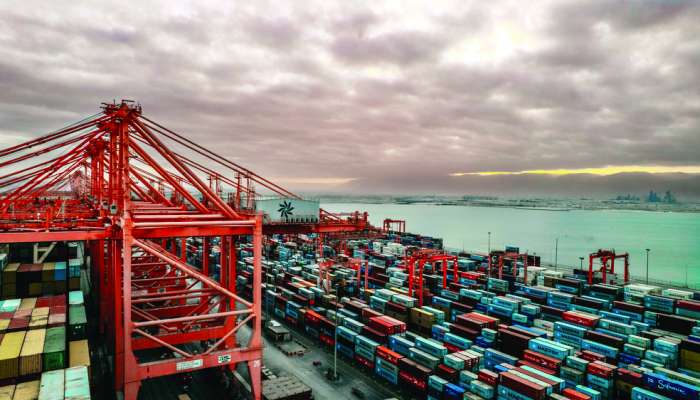The Sultanate of Oman has seen an increase in its gross domestic product (GDP) at current prices, reaching OMR10.44 billion at the end of the first quarter of 2024. This is a 0.8% increase compared to OMR10.36 billion during the same period in 2023. The National Centre for Statistics and Information (NCSI) reported that crude oil activities decreased by 4.4% to OMR2.996 billion, while natural gas activities saw a slight decrease of 0.1% to OMR524.40 million. On the other hand, non-oil activities demonstrated a significant increase of 3.9% to OMR7.18 billion at the end of the first quarter of 2024.
Total industrial activities in Oman reached OMR2.01 billion at the end of the first quarter of 2024, compared to OMR1.91 billion at the end of the first quarter of 2023. Additionally, agricultural, forestry, and fishing activities reached OMR277 million, while the service sector activities totaled OMR4.89 billion. These numbers showcase a positive trend in the non-oil sector, which is crucial for diversifying Oman’s economy and reducing its reliance on oil revenues.
The increase in non-oil activities demonstrates the government’s efforts to boost the country’s economy and reduce its dependency on oil. Diversifying the economy is crucial for long-term sustainability and resilience, especially in the face of volatile oil prices. By focusing on sectors such as industrial activities, agriculture, forestry, fishing, and services, Oman is working towards a more balanced and resilient economy that can withstand market fluctuations and global challenges.
Oman’s focus on non-oil activities is also evident in the growth of its industrial sector, which plays a key role in creating jobs, fostering innovation, and driving economic growth. The expansion of industrial activities from OMR1.91 billion to OMR2.01 billion demonstrates the potential for further growth and development in this sector. By investing in industrial infrastructure, technology, and human capital, Oman aims to create a competitive and sustainable industrial base that can contribute significantly to its GDP.
The agriculture, forestry, and fishing sector in Oman is also showing promising growth, with activities reaching OMR277 million. This sector plays a vital role in providing food security, employment opportunities, and supporting rural communities. By investing in modern agricultural practices, sustainable forestry management, and efficient fishing techniques, Oman can further enhance the productivity and sustainability of these activities. Additionally, promoting exports of agricultural products can generate foreign exchange earnings and boost the country’s overall economic performance.
In conclusion, Oman’s GDP growth in the first quarter of 2024 reflects a positive trend in the non-oil sector, driven by increased industrial, agricultural, forestry, and fishing activities. By diversifying its economy and reducing its reliance on oil revenues, Oman is laying the foundation for long-term economic sustainability and resilience. Continued investment in key sectors and initiatives that support economic diversification will be crucial for achieving sustainable growth and prosperity in the Sultanate.











